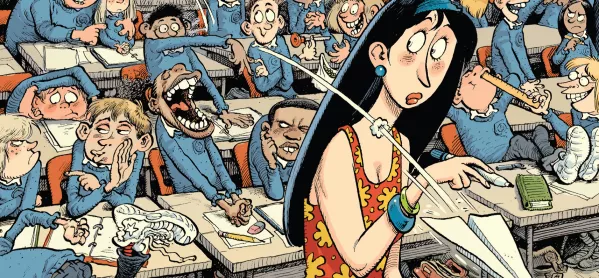Why consistency isn’t always the best behaviour strategy
Share
Why consistency isn’t always the best behaviour strategy
Picking your battles is not meant to be part of the agenda with behaviour management. Everyone knows that the best behaviour gurus are those who are consistent, those who apply the same exacting standards to all students. They are fair and focused, and demand the best. Being unequivocally homogenous is an obvious ideal: one set of non-breakable rules for all. After all, life doesn’t differentiate for adults, so why should schools differentiate for students?
Put behaviour in context
Yet, the application of one behaviour policy for a huge range of children is often very challenging. How fair is it to chastise one student for the same thing as another when their home lives/support networks/financial backgrounds vary enormously?
It’s perhaps controversial to say it, but there are times when, as a teacher, you should avoid a battle, or even deliberately lose one, because you know that one child is less privileged than another or that they are going through a particularly tough time.
To give a real-life example, let’s take “Robert”. Robert is 13 and has an extremely difficult home life. When he does live with his alcohol-dependent mother, he has no support at all - he is fed and clothed by school and regularly looked after by social services. Is it OK to tell him off for not having a pen every lesson as I would a different student who I know has supportive parents, food on the table and a pencil case full of pens? Shouldn’t I just be applauding the fact that he managed to turn up at all?
Pick your battles
With children like this, I always try to find ways to avoid “small” battles (for instance, over a lack of equipment) so that I can focus on the bigger picture.
I look for crafty solutions that subtly avoid unnecessary confrontations. In Robert’s case, I might suggest he leave a pen in his book or in my classroom so that it is always there waiting for him. Thus, the repetitive lack-of-pen argument can be avoided.
I believe that if you can be creative with the small battles with your tougher kids, you will save your own energy and avoid futile exasperation. That way, you have more energy to devote to the more important things, like the lesson you have planned, the kids’ experience, and their overall learning.
Katie White is an English teacher at Kingsbridge Community College in Devon
This is an edited article from the 19 February edition of TES. Subscribers can read the full article here. This week’s TES magazine is available in all good newsagents. To download the digital edition, Android users can click here and iOS users can click here
Want to keep up with the latest education news and opinion? Follow TES on Twitter and like TES on Facebook





